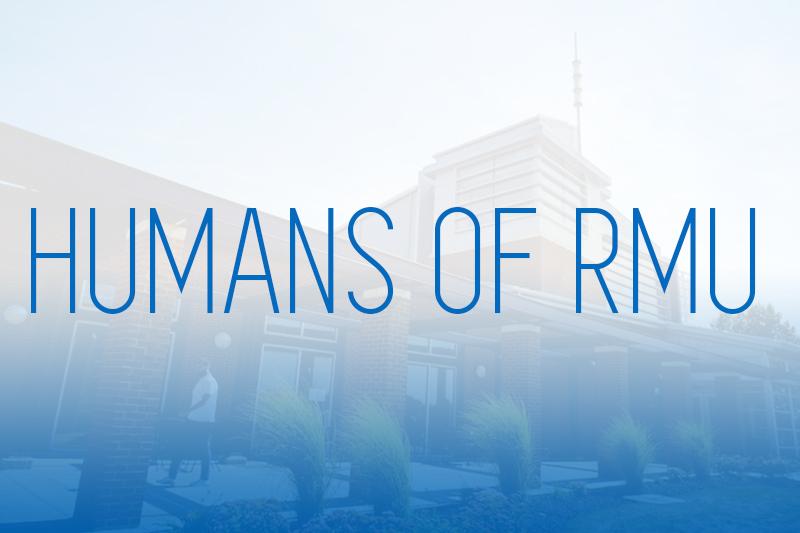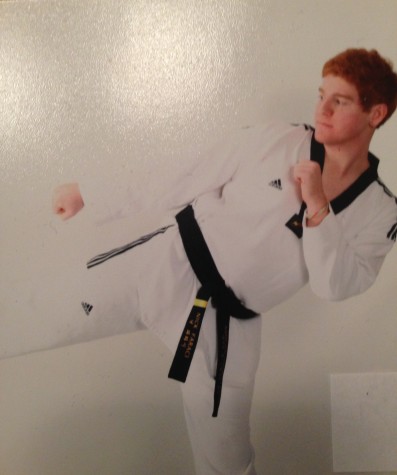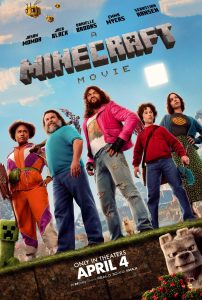Humans of RMU: The Black Belt
November 9, 2015
As a child, Nick Faraci, a junior at Robert Morris, was exposed to Taekwondo through his best friend. Korean martial artists began developing Taekwondo after WWII. According to the International Taekwon-Do Federation, It is a martial art that focuses on fitness, speed and kicking—with the highest points earned for kicks to the head.
When Faraci was hanging out at his friend’s house, he had no idea he would go on to earn a black belt.
“My best friend Vincie’s family owned a Taekwondo studio, so every time I would go over to his house, I would end up doing Taekwondo with him and his dad,” Faraci said. “I guess you could say that I started when I was around 10, but I did not officially start until I was around 15.”
While he earned his first belt about two months after he began focusing on the martial arts, it took three more years of hard work and dedication to earn a black belt. In order to achieve additional belt levels, Faraci had to be tested in front of Taekwondo masters where he demonstrated his ability to break boards and show his form, which is the martial art’s set of defense and attack motions that must be mastered to earn a belt.
“My black belt test was one of the greatest experiences of my life,” Faraci said. “Since I first stepped into the dojo, I had one goal and that was to become a black belt. Achieving that goal gave me an unexplainable rush.”
College life hasn’t made it easy for him to practice, so Faraci waits for school breaks when he can go home and work out. It is a trade-off that is worth making because he believes that martial arts have made him a better student.
“It has taught me to be patient and work for what I want to achieve, that applies to about every aspect of school,” Faraci said.
Martial art’s influence has extended past the belts that he has earned. Faraci explained how it goes beyond breaking boards and executing forms, and that it also teaches morals such as respect, integrity, self-confidence, dedication and leadership. All of these parts came together to make a big impact on his life.
“Taekwondo doesn’t just teach you how to kick and punch people really hard,” Faraci said. “I don’t know where I would be if it wasn’t such a big part of my life.”













